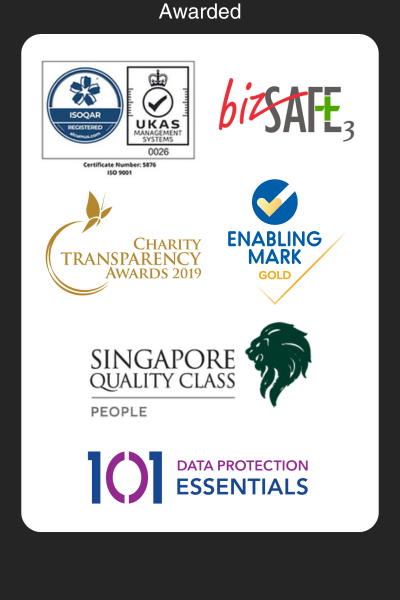Translated from脾胃虚弱的调养与预防
The spleen and stomach are vital organs in the digestive system and play a huge part in maintaining one’s life. Blood generation, absorption of nutrients from food, are the spleen and stomach’s main functions, which also determine the quality of one’s health.
Traditional Chinese Medicine (TCM) emphasises individuals’ maintenance of their spleens and stomachs, which entails healthy diets. Overeating and observing irregular meal times are essentially detrimental. Furthermore, as a rule of thumb in TCM, individuals should not consume certain foods that may potentially harm the spleens and stomachs.
Symptoms and Treatments
Differential Diagnoses
There are four differentiated diagnoses for deficiencies in spleens and stomachs in TCM.
- Qi-deficiency in spleen: Symptoms include breathlessness, fatigue, dizziness, diarrhoea, mild bleeding in stools, pale complexion.
- Yang-deficiency in spleen: Symptoms include stomach and abdominal pain, abdominal pain, and diarrhoea. They are caused by consuming raw and cold foods.
- Qi-deficiency in stomach: Symptoms include bloated stomach, gastric pain, hiccups, loss of appetite, and indigestion after meal.
- Yin-deficiency in stomach: Symptoms include heatiness, dry mouth, overactive appetite, acid reflux, and mouth ulcers.
Forbidden Foods
Avoiding certain unsuitable foods, depending on individuals’ health conditions, is vital to supplement TCM treatments.
- Avoid cold foods: Cold foods refer to both raw and cooked foods that are cooled. And consuming these cold foods may harm the spleen and stomach. Fruits and raw vegetables can be consumed only after the abovementioned gastro-intestinal symptoms have subsided. On the other hand, consuming cold foods such as ice-cream and chilled beverages, especially from a young age, is likely to lead to a weak spleen and stomach.
For individuals who are already suffering from gastro-intestinal problems should steer clear of cold foods and drinks completely, with the exception of fruits and vegetables. Consumption of cold foods at this stage may lead to yang-deficiency in the spleens.
- Avoid greasy foods: Digesting of greasy meat dishes, fried foods, coconut milk and glutinous rice generally requires a higher level of body energy and qi in one’s body. Hence when one is ill-stricken, the digestion of greasy foods takes a toll on one’s immunity.
- Other Tips: As previously emphasised, individuals have to avoid certain foods to attain optimal results in treatments and rehabilitations. Consuming health supplements to compensate the deficiencies in one’s body is highly discouraged. Patients have to understand the digested food may not constitute the nutrients absorbed.
Ailing patients may experience periodic hunger pangs throughout a day but feel satiated quickly after a small amount of food intake. The hunger pangs can be explained by the body’s lack of certain nutrients, whereas the easily satiated feeling is linked to a lack in the body’s ability to absorb nutrients. At this juncture, patients’ systems may not even absorb supplementary tonics that are nourishing in normal circumstances.
The dos and don’ts in food consumption: Generally, the digestion and absorption processes consume energy. The term, energy, comes in two forms. One refers to the physical, visible, and static form, while another refers to the invisible, active form that is manifested as heat. The former is the energy source, in which the movement will produce the latter; the energy flow. In order to replenish energy, one should consider two elements: the physical foods, and foods that are “heaty”. Hence, complying with the “forbidden foods” rule will increase likelihood of the consumption of “heaty” food.
Replenishing energy: Firstly, there is a need to clarify some biological principles. The energy conversion process consumes energy, which means, one requires energy to translate food into usable energy in the body. For instance, should albumin (water-soluble protein) be injected into one’s body, the body must heat it to its temperature before the protein can be used. Hence, a frail body will struggle to absorb the nutrients due to its lack of energy required for the conversion process. Additionally, this concept suggests the majority of obese individuals have weak or heat-deficient constitutions, leading to poor absorption of nutrients and poor excretory systems.
TCM believes that food comes in two categories; yin and yang. Food in the yang category is “heaty”, while yin food is considered “cold”. Consuming “heaty” food is essentially beneficial for individuals who have difficulties in absorption of nutrients. It is, however, not necessary to consume hot fruits.
Dietary Advice
Individuals with deficiencies in their spleens and stomachs should consume “heaty” food containing onions, ginger, leek, garlic, and pepper. Red dates, Chinese yam (山药), lentils, euryale ferox (fox nuts), and lotus seeds are also recommended.
Conversely, those with excessive stomach heat should consume pears, lotus roots, sugar canes, honey, and other cold foods. Individuals who face indigestion problems, should consume radish, bergamot oranges, kumquats, and sauces made from mandarin orange peels.
For optimal results, one with weak spleen and stomach should consume porridge cooked with Chinese yam (山药), poria (fu ling), and barley, on a daily basis.
Preventive Measures
Do take note of the following lifestyle tips to prevent any spleen or stomach deficiency.
- Exercise regularly to strengthen general immunity.
- Maintain healthy sleep patterns. Avoid staying up late at night.
- Lying on the right of the body helps ease contents in the stomach into the duodenum (small intestine). This aids in digestion and relaxes one’s muscles, which will in turn be beneficial to the stomach qi.
- Be mindful not to overwork one’s body in the daily activities. Prolonged periods of fatigue lead to spleen and stomach ailments.
- One should strictly adhere to restriction on the abovementioned forbidden foods.
To vitality and healthy eating habits!
This article is brought to you by Dr. Loh Kooi Cheng.
Dr. Loh received accreditation from Institute of Chinese Medical Studies in Singapore before obtaining a master degree in Traditional Chinese Medicine at Beijing University of Chinese Medicine in 2005. Throughout his 30 years in practice, Dr. Loh has also been actively lecturing related classes. From 2001 to 2006, he took up a lecturing position at his Alma Mata, Institute of Chinese Medical Studies. From 2006 to 2011, he lectured for a part-time degree course jointly-organised by Institute of Chinese Medical Studies and Beijing University of Chinese Medicine.


